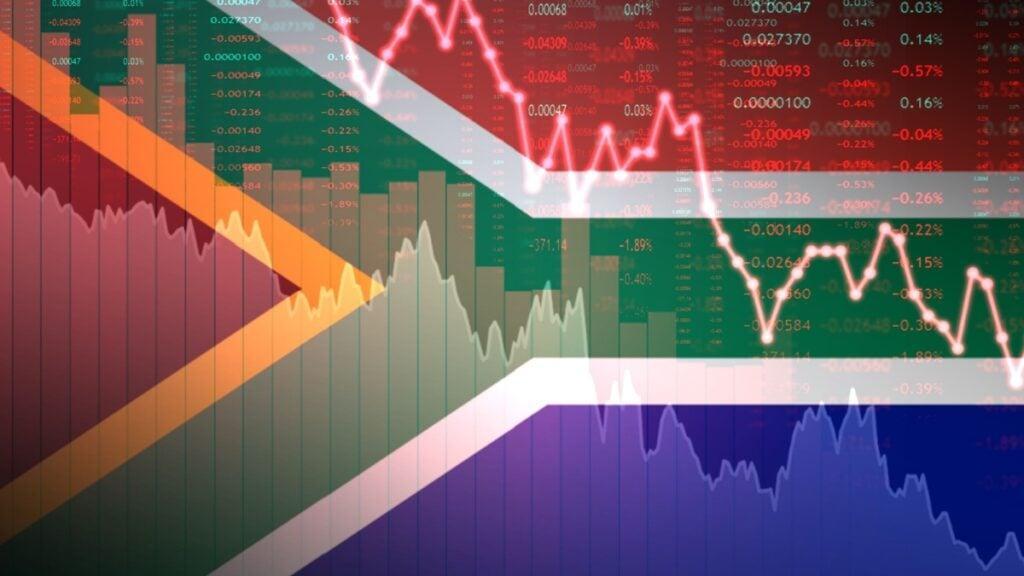Africa-Press – South-Africa. South Africa’s low inflation outlook is partly due to weak demand, which could spell trouble for economic growth in 2025.
The Bureau for Economic Research’s second-quarter inflation expectations survey showed that expectations for 2025 have fallen below 4% for the first time in four years.
This survey tracks the inflation expectations of three social groups – business people, trade union representatives, and analysts.
Investec chief economist Annabel Bishop explained that CPI inflation is set to average below the Reserve Bank’s inflation target range of 3% to 6% in the second quarter of 2025, with the third quarter starting from a low base.
Bishop expects July’s CPI inflation rate to be 3.1%, up from around 2.9% in June, mainly due to a low base effect from July 2024.
While South Africa’s downward inflation trend will likely end mid-year, CPI inflation is still expected to average only 3.2% in 2025.
However, Bishop said modest demand price pressures in the economy could see it even slightly below this.
While this low inflation outlook is a strong sign that South Africa may see another interest rate cut this year, the reasons behind the moderation could be troubling.
Bishop explained that inflationary pressure in South Africa is likely to remain modest due to weak demand.
This weak demand could spell trouble for South Africa’s economy, as household consumption expenditure (HCE) is one of the biggest drivers of GDP growth.
In the first quarter of 2025, HCE experienced only modest growth at 0.4% quarter-over-quarter, compared to 1.1% growth in the fourth quarter of 2024.
Retail sales inflation – a key indicator of the cost of living and consumer purchasing power – also came out at a low 1.5% year-on-year in Q1 2025, well below CPI inflation.
This modest growth in HCE partly contributed to South Africa’s low GDP growth of 0.1% in the first quarter of 2025.
The BER inflations survey also showed that all three social groups are now more pessimistic about economic growth.
On average, they expect South Africa’s GDP to expand by 0.9% this year, compared to 1.2% before. For 2026, they anticipate growth of 1.2%, lower than the 1.4% expected during the first quarter.
Consumers under pressure
Investec chief economist Annabel Bishop
Part of the reason for the weak demand in South Africa’s economy is the immense financial pressure consumers are under.
Discovery Bank and Visa’s latest SpendTrend report showed that consumer spending is coming under renewed pressure despite a decline in inflation.
Discovery Bank CEO Hylton Kallner explained that average spending per card is flat year-on-year and trended downwards throughout 2024.
The report showed that growth in spending was below headline inflation, with consumers spending less in real terms.
Fortunately, Bishop explained that interest rate cuts later this year could ease cost-of-living pressures, boosting demand and, therefore, spending.
“With CPI inflation likely close to 4.0% over 2026, the SARB could cut the repo rate further, towards 6.0%, to add some life into the weak economy from the demand side, although much will depend on the new inflation target,” she said.
Bishop expects the Reserve Bank to cut interest rates by a further 25 basis points at its November meeting, which would lower the repo rate to 7.00%.
She explained that while some may be expecting another cut to come in July considering South Africa’s low inflation, this is unlikely.
She said the Reserve Bank is unlikely to cut interest rates at this month’s Monetary Policy Committee meeting, having cut by 25 basis points at its May meeting already, and by 100 basis points since September 2024.
At its last meeting in May, the SARB said the risks to its inflation outlook were balanced but also considered an adverse scenario, which showed some significant upside risks.
This scenario was based on a global slowdown triggered by escalating trade tensions, where the rand depreciates sharply.
“The scenario showed how a country with some fundamental vulnerabilities, like South Africa, risks stagflation, with growth moving lower while inflation rises due to currency weakness,” Reserve Bank Governor Lesetja Kganyago said.
“In these conditions, monetary policy tightens to stabilise the macroeconomy.”
Source: dailyinvestor
For More News And Analysis About South-Africa Follow Africa-Press






